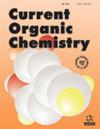Cobalt (III)–porphyrin Complex as an Efficient and Recyclable Homogeneous Catalyst for the Synthesis of Tetrahydro-2-oxa-4-thia-diazapentalen-5-one Derivatives in Aqueous Medium
IF 2.1
3区 化学
Q3 CHEMISTRY, ORGANIC
引用次数: 0
Abstract
: In this study, we successfully synthesized the CoPHrn complex as an efficient and recyclable catalyst for the one-pot, three-component reaction of aromatic aldehydes, 2,4-thiazolidenedione, and hydroxylamine hydrochloride, leading to the synthesis of tetrahydro-2-oxa-4-thia-diazapentalen-5-one derivatives under environmentally friendly conditions. The structures of the newly formed compounds were determined through elemental and spectral analyses. This methodology offers significant advantages, including its eco-friendliness, cost-effectiveness, operational simplicity, extensive reusability, and applicability, as well as the easy recovery of the catalyst using straightforward methods. Additionally, a series of tetrahydro-2-oxa-4-thia-diazapentalen-5- one derivatives were successfully synthesized. Notably, this novel procedure demonstrates remarkable benefits in terms of safety, simplicity, stability, mild reaction conditions, short reaction times, excellent yields, and high purity, all achieved without the use of hazardous solvents.在水介质中合成四氢-2-氧杂-4-硫杂氮杂环戊烯-5-酮衍生物的高效可循环均相催化剂钴 (III)-卟啉配合物
在这项研究中,我们成功合成了 CoPHrn 复合物,它是一种高效且可回收的催化剂,可用于芳香醛、2,4-噻唑烷二酮和盐酸羟胺的一锅三组分反应,从而在环境友好的条件下合成四氢-2-氧杂-4-噻二氮杂戊烯-5-酮衍生物。通过元素分析和光谱分析确定了新生成化合物的结构。该方法具有环保、成本效益高、操作简单、重复利用率高和适用性强等显著优势,而且催化剂易于通过简单的方法回收。此外,还成功合成了一系列四氢-2-氧杂-4-硫杂-5-氮杂戊烯衍生物。值得注意的是,这种新型方法在安全、简单、稳定、反应条件温和、反应时间短、产率高和纯度高等方面都有显著优势,而且无需使用有害溶剂。
本文章由计算机程序翻译,如有差异,请以英文原文为准。
求助全文
约1分钟内获得全文
求助全文
来源期刊

Current Organic Chemistry
化学-有机化学
CiteScore
3.70
自引率
7.70%
发文量
76
审稿时长
1 months
期刊介绍:
Current Organic Chemistry aims to provide in-depth/mini reviews on the current progress in various fields related to organic chemistry including bioorganic chemistry, organo-metallic chemistry, asymmetric synthesis, heterocyclic chemistry, natural product chemistry, catalytic and green chemistry, suitable aspects of medicinal chemistry and polymer chemistry, as well as analytical methods in organic chemistry. The frontier reviews provide the current state of knowledge in these fields and are written by chosen experts who are internationally known for their eminent research contributions. The Journal also accepts high quality research papers focusing on hot topics, highlights and letters besides thematic issues in these fields. Current Organic Chemistry should prove to be of great interest to organic chemists in academia and industry, who wish to keep abreast with recent developments in key fields of organic chemistry.
 求助内容:
求助内容: 应助结果提醒方式:
应助结果提醒方式:


